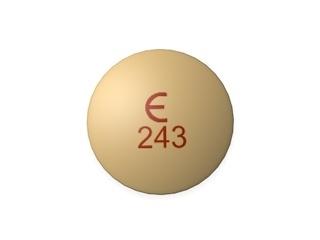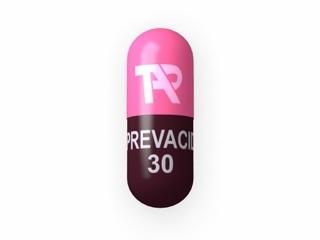Reglan (Metoclopramide)
Generic name: Metoclopramide.
Dosage: Reglan 10mg.
Category: Gastro Health.
Buy Reglan online without prescription: Reglan Online Pharmacy
Reglan – recommendations for use and dosage
Reglan is an anti-vomiting medications which prevents vomit, hiccup, stimulates and coordinates motor activity of gastrointestinal tract. Reglan increases both acetylcholine release from neurons and cholinergic receptor sensitivity to acetylcholine. It is a blocker of serotonin receptors. It increases lower esophageal sphincter tone, stimulates contractions of smooth gastric muscles and at the same time relaxes the pylorus and duodenum. Reglan interacts with the dopamine receptors in the brain and can be effective in treating nausea. This medication is used to treat gastroesophageal reflux disease (GERD), diabetic gastroparesis, atonia and hypotonia of the stomach and intestines, biliary dyskinesia, flatulence, complex therapy of gastric and duodenal ulcers in phase of exacerbation, acceleration of peristaltic activity during gastrointestinal radiocontrast studies.
Dosage and direction
Usual dose of Reglan for adults is 5-10 mg 3-4 times a day before a meal with a glass of water. In patients with vomiting, severe nausea 10 mg of Reglan is administered intramuscularly (IM) or intravenously. Measure liquid drug with a special dose-measuring spoon. The oral concentrate form of Reglan must be mixed with another liquid (water, fruit juice, soda) or a soft food. Take this medication exactly as prescribed to you, do not use it longer than 3 months.
Precautions
You should not take this medication if you are allergic to Reglan or have bleeding or blockage in your stomach or intestines, epilepsy or other seizure disorder, or an adrenal gland tumor. Notify your doctor about such your conditions as kidney or liver disease, congestive heart failure, diabetes, or a history of depression. Avoid drinking alcoholic beverages during treatment.
Contraindications
Bleeding in the gastrointestinal tract, mechanical intestinal obstruction, perforation of the stomach or intestines, pheochromocytoma, extrapyramidal disorders, epilepsy, prolactin-dependent tumors, glaucoma, pregnancy, breastfeeding, concomitant use of anticholinergic drugs, hypersensitivity to Reglan.
Possible side effect
Most common side effects of Reglan are drowsiness, restlessness, fatigue, anxiety, insomnia, depression, and sedation. More serious side effects include: tremors, rigidity, or restless muscle movements in your eyes, slow movements, tongue, jaw, or neck, mask-like appearance of the face (similar to Parkinson’s disease), fever, stiff muscles, confusion, sweating, depressed mood, hallucinations, jaundice, swelling, tardive dyskinesia. Involuntary movements of the arms and legs are possible in children and adults over 30 y.o. If you experience symptoms listed above stop taking Reglan and notify your doctor about it, you may need immediate medical attention.
Drug interaction
Reglan, also known by its generic name metoclopramide, is a medication commonly prescribed to treat gastrointestinal issues such as gastroparesis, acid reflux, and nausea and vomiting associated with chemotherapy or surgery. It works by increasing muscle contractions in the upper digestive tract, which helps move food and acid through the stomach and intestines.
When considering drug interactions with Reglan, it’s important to consult with a healthcare professional or pharmacist, as interactions can vary depending on individual factors such as medical history, other medications being taken, and dosage of Reglan.
Here are some common drug interactions with Reglan:
- Central Nervous System Depressants: Reglan may enhance the sedative effects of central nervous system depressants such as alcohol, benzodiazepines (e.g., diazepam), and opioids. This can increase the risk of drowsiness, dizziness, and impaired coordination.
- Anticholinergic Medications: Concurrent use of Reglan with anticholinergic medications (e.g., some antidepressants, antihistamines, and medications for overactive bladder) may lead to decreased effectiveness of both drugs due to opposing effects on the nervous system.
- Dopamine Antagonists: Reglan may interact with other medications that affect dopamine levels in the brain, such as antipsychotic medications (e.g., haloperidol) and certain drugs used to treat Parkinson’s disease. This combination can increase the risk of side effects such as movement disorders and neurological symptoms.
- Serotonergic Medications: Combining Reglan with serotonergic medications (e.g., selective serotonin reuptake inhibitors, serotonin-norepinephrine reuptake inhibitors) may increase the risk of serotonin syndrome, a potentially life-threatening condition characterized by confusion, agitation, rapid heart rate, and high blood pressure.
- Drugs that prolong QT interval: Reglan may prolong the QT interval in some patients, especially at higher doses or when used for an extended period. Concurrent use with other medications that also prolong the QT interval (e.g., certain antibiotics, antipsychotics, and antidepressants) may increase the risk of serious cardiac arrhythmias.
It’s crucial to inform your healthcare provider about all medications, supplements, and herbal products you are taking before starting Reglan to minimize the risk of drug interactions. Additionally, if you experience any unusual symptoms or side effects while taking Reglan, it’s essential to seek medical advice promptly.
Digestive system disorders, or gastrointestinal disorders, are a general term that describes a wide range of problems related to the functioning of the digestive tract. These disorders can affect any part of the digestive system, including the esophagus, stomach, intestines, liver, pancreas and gallbladder. Some common types of digestive disorders include:
- Gastroesophageal reflux disease (GERD) is when fluid from the stomach returns to the esophagus, causing symptoms such as heartburn and chest discomfort.
- Peptic ulcers are ulcers that form on the lining of the stomach, duodenum, or other parts of the digestive system.
- Irritable bowel syndrome (IBS) is a chronic condition characterized by abdominal pain, changes in stool frequency or consistency, and bowel discomfort.
- Constipation and diarrhea are changes in stool frequency and consistency that can be associated with various digestive problems.
- Inflammatory bowel diseases (IBD) are a group of chronic diseases, such as Crohn’s disease and ulcerative colitis, that cause inflammation in the intestines.
These and other digestive disorders can have a variety of causes, including food allergies, infections, stress, eating disorders and hereditary factors. Treatment for digestive disorders depends on the cause and symptoms and may include lifestyle changes, diet, medications, and sometimes surgery. If you experience severe or ongoing symptoms of a digestive disorder, it is important to see a doctor for evaluation and treatment.





